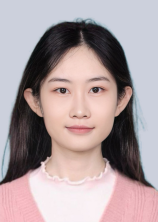Pain sensation is critical for animals to sense the changing environment for potential danger, and thus is important for the survival of animals. Chronic pain, however, has been reported to affect the lives of more than 15% of adults.What's more devastating is a lack of viable treatment. Our recent discovery of the functional role of the ipsilateral spino-parabrachial pathway in pain sensation provides a critical foundation for the study of the central mechanism of pain processing. The research interest of our lab is to understand the cellular and circuit mechanisms contributing to the sensory and affective components of chronic pain using a combination of viral tracing, optogenetic, pharmacogenetic and behavioral techniques. With a long term goal of identifying new targets for the treatment of chronic pain. Current projects include:
1. The function and plasticity of supraspinal circuits – involved in the development of chronic pain
2. The neural circuits/pathways that regulate pain-related negative emotions
3. How pain percept can be modulated based on respective physiological states

Email:litingsun@fudan.edu.cn
Research Direction:Molecular mechanisms of neuropathic pain and pain modulation by spinal cord stimulation

Email:tangm@fudan.edu.cn
Research Direction:Design of flexible nerve electrode, electronic skin and flexible sensor array

Email:Bellayang0121@foxmail.com
Research Direction:...

Email:leeyoungdaejiang@gmail.com
Research Direction:1, Mechanisms for the development of neuropathic pain 2, Descending inhibitory control in nociception

Email:m18392176131@163.com
Research Direction:...

Email:22111520021@m.fudan.edu.cn
Research Direction:Neural circuits of chronic pain

Email:21111520030@m.fudan.edu.cn
Research Direction:Pain-related negative emotions

Email:23111520033@m.fudan.edu.cn
Research Direction:...

Email:23211520041@m.fudan.edu.cn
Research Direction:...
Juan Deng#, Hua Zhou, Jun-Kai Lin, Zi-Xuan Shen, Wen-Zhen Chen, Lin-Han Wang, Qing Li, Di Mu, Yi-Chao Wei, Xiao-Hong Xu, Yan-Gang Sun#. The parabrachial nucleus directly channels spinal nociceptive signals to the intralaminar thalamic nuclei but not the amygdala. Neuron, 2020, 107, 1-15. (# Corresponding author)

Dechen Liu, Juan Deng, Zhewei Zhang, Zhi-Yu Zhang, Yan-Gang Sun, Tianming Yang, and Haishan Yao. Orbitofrontal control of visual cortex gain promotes visual associative learning. Nature Communications, 2020, 11, 2784.

Lei Yuan, Tong-Yu Liang, Juan Deng, and Yan-Gang Sun. Dynamics and functional role of dopaminergic neurons in the ventral tegmental area during itch processing. The Journal of Neuroscience, 2018, 38, 9856-9869.

Di Mu*, Juan Deng*, Ke-Fei Liu, Zhen-Yu Wu, Yu-Feng Shi, Wei-Ming Guo, Qun-Quan Mao, Xin-Jun Liu, Hui Li, Yan-Gang Sun. A central neural circuit for itch sensation. Science, 2017, 357, 695–699. (* Equal contribution)

Li Zhou, Ming-Zhe Liu, Qing Li, Juan Deng, Di Mu, Yan-Gang Sun. Organization of functional long-range circuits controlling the activity of serotonergic neurons in the dorsal raphe nucleus. Cell Reports, 2017, 18, 3018-3032.

Yang Yang, Dan-qian Liu, Wei Huang, Juan Deng, Yangang Sun, Yi Zuo & Mu-ming Poo. Selective synaptic remodeling of amygdalocortical connections associated with fear memory. Nature Neuroscience, 2016, 19, 1348–1355.

 Address: Building B, Medical Research Building, 131 Dong'an Road, Xuhui District, Shanghai
Address: Building B, Medical Research Building, 131 Dong'an Road, Xuhui District, Shanghai
 Postcode: 200032
Postcode: 200032
 Telephone/Fax: 021-54237892
Telephone/Fax: 021-54237892
 Email: juandeng@fudan.edu.cn
Email: juandeng@fudan.edu.cn